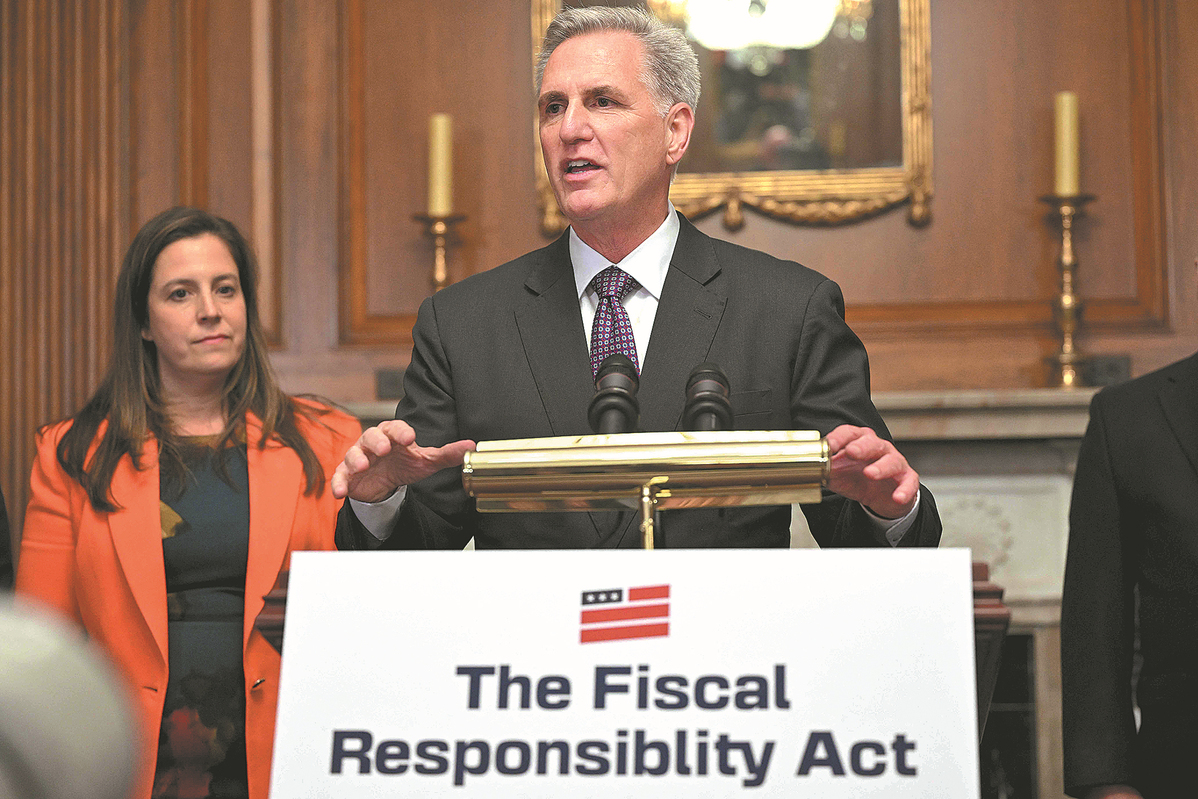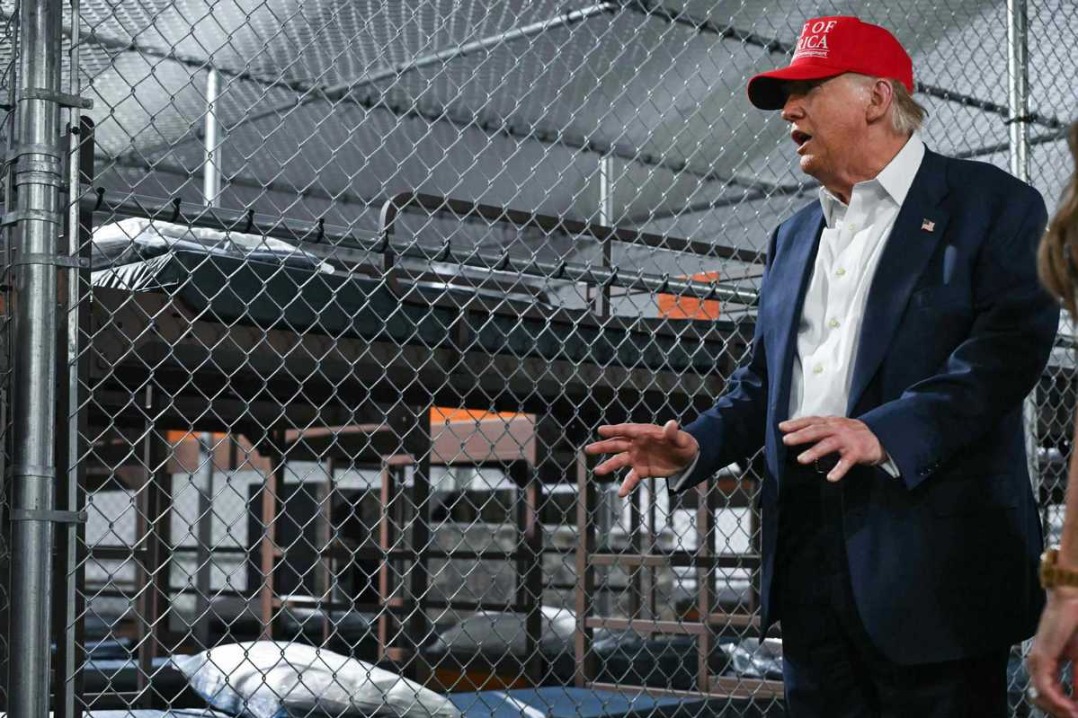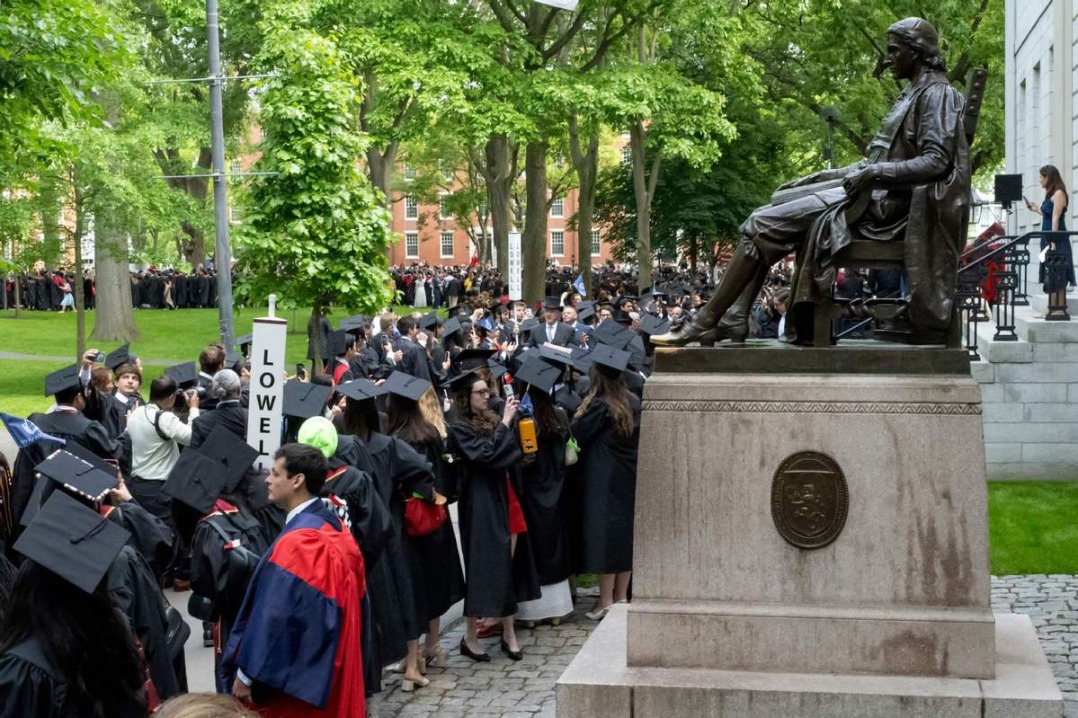'Competition 2.0' aims at unfair advantage


Bipartisan agreement
Biden and House Republican leaders have reached an agreement in principle to limit federal spending over the next two years in exchange for suspending the debt ceiling. On June 3, Biden signed a bipartisan act that suspends the US government's $31.4 trillion debt ceiling until Jan 1, 2025, and increases the limit to the actual debt level on Jan 2, 2025, averting the risk of an economic catastrophe.
The debt ceiling deal cuts so-called nondefense discretionary funding, including scientific research, for fiscal year 2024.
Proponents of the Chips and Science Act have grown worried that limits on government spending could undercut the law's ambitious goals of bolstering the country's scientific edge and countering China's technological rise.
"It's even harder to be optimistic about the odds of fulfilling the Chips and Science Act's vision of resurgent investment in American competitiveness," the Brookings Institution's report said.
What is called the "place-based industrial policy" in the act is also coming up short, with less than 10 percent of the five-year place-based target funded to date, the report said.
There have been two rounds of proposed or adopted funding policy for chips research agencies, and the results are "mixed to disappointing", it said.
"With these shortfalls at NSF (National Science Foundation) and other agencies, it will be difficult for federal science and innovation programs to have the transformative impact that CHIPS envisioned."
Congress is not the only one to blame — the White House budget also contains "sizable funding shortfalls" for research agencies, the analysis said.
The Chips and Science Act offers both "carrots" to subsidize domestic chip manufacturers and "sticks" to restrict China's ability to purchase US highly advanced chips through export controls.
Schumer has said the new planned legislation would build on that law and further strengthen export controls to make it harder for China to obtain cutting-edge technology.
Since US companies account for 47 percent of global revenue in the semiconductor industry and China is a key market, some major semiconductor companies in the US have taken a hit from the policy.
US semiconductor equipment makers Lam Research and Applied Materials have said their revenue projections this year are likely to be hit between $600 million and $2.5 billion because of export restrictions.
"The damaging blowback from Biden's China policy may not be as obvious as not raising the debt ceiling, but there is a strong element of cutting off Uncle Sam's nose to spite his face that the leaders in Washington seem oblivious to," Koo said.
"The desire to inflict pain on China far outweighed protecting Americans from even greater pain."
Koo gave the sanction of Huawei as an example to illustrate his point.
"Huawei has developed the world's most advanced fifth-generation telecommunication system, which has received acceptance around the world. Because of US fear of being spied upon, Washington not only has refused to buy from Huawei but pressured many of its allies to rip out billions of dollars' worth of Huawei equipment already installed.
"After enduring the US sanctions for three years, Huawei has just announced the complete replacement of operating software based on Western technology. It will now sell to the world without any constraints, while the United States' allies suffer hundreds of billions of dollars from the teardown of already installed Huawei equipment and the huge opportunity costs of not having a state-of-the-art telecommunications system."
































